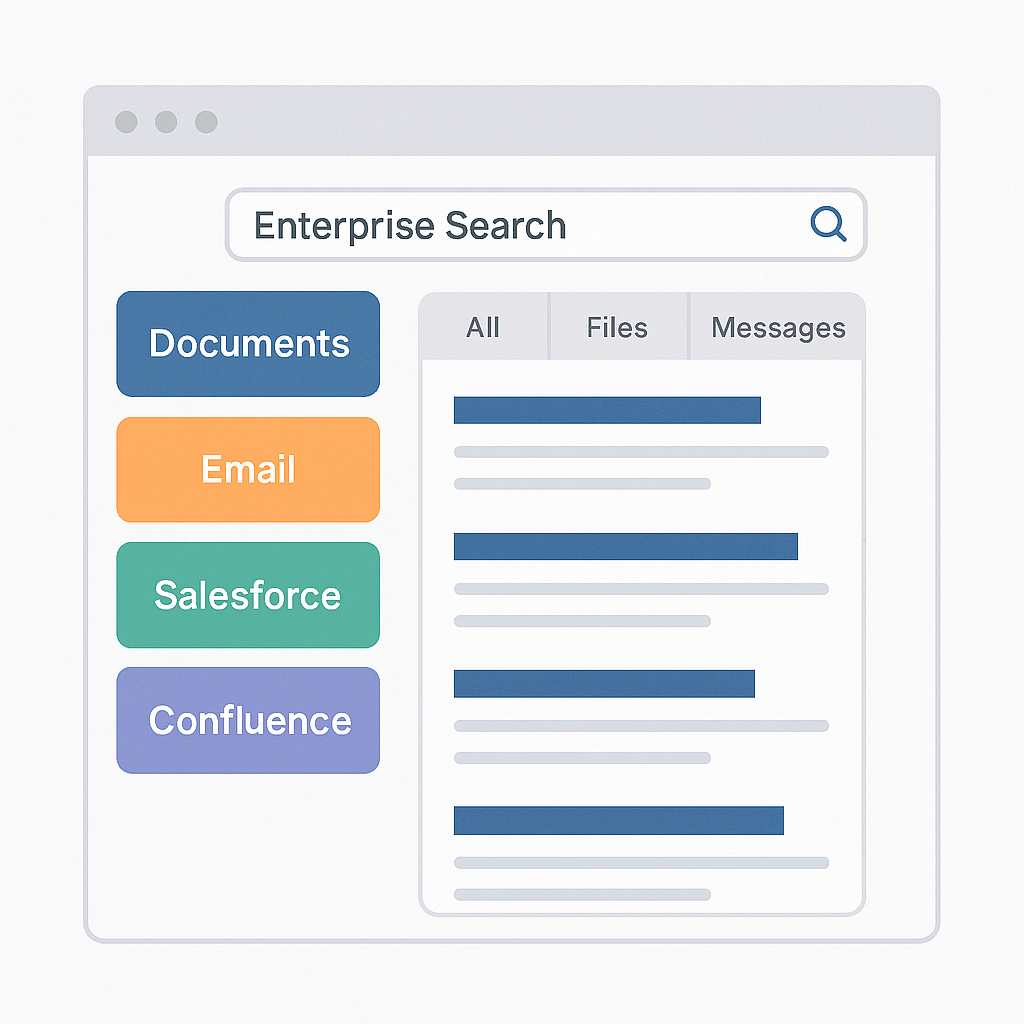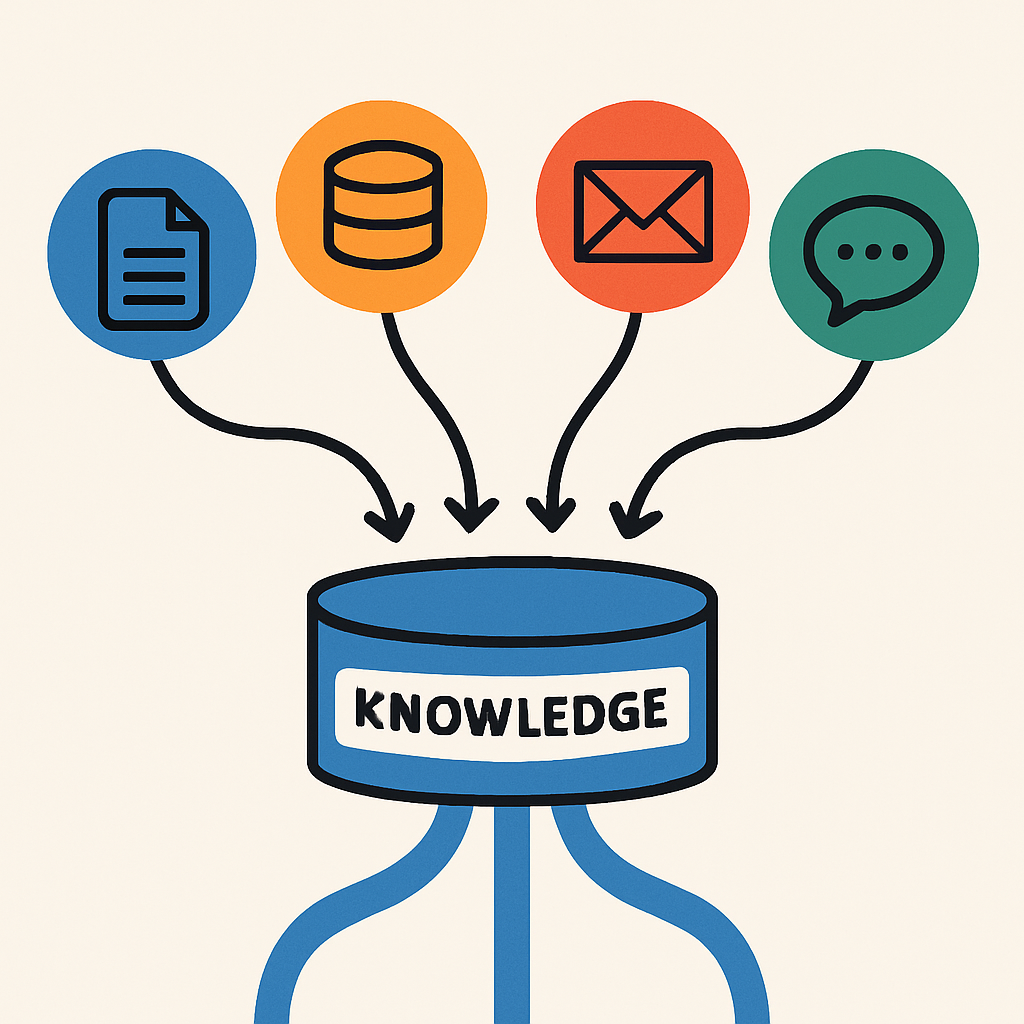In today's dynamic and information-rich workplace, the average employee reportedly spends nearly 1.8 hours every single day—which translates to a staggering 9.3 hours per week—simply searching for and gathering information. This means almost a quarter of the workweek can be consumed by the often frustrating task of hunting through a labyrinth of documents, emails, disparate messaging platforms, and various databases. Enterprise search is designed to fundamentally transform this experience. It aims to create a unified, intelligent, and intuitive search layer that seamlessly spans across all of your organization's diverse information systems.

Understanding Enterprise Search
Enterprise search transcends the capabilities of a basic search box that merely returns exact keyword matches. It's a far more sophisticated system that leverages advanced technologies to understand the nuances of human language and the contextual relationships between different pieces of information. A robust enterprise search solution can interpret natural language queries, recognize how various documents and data points connect, and bridge information silos that often exist between disparate enterprise systems. Furthermore, it can personalize search results based on an individual's role, permissions, and past search behavior, and it continuously learns from usage patterns to refine and improve the relevance of search results over time.

The true power of enterprise search lies in its ability to index and search across a multitude of systems simultaneously. Imagine being able to query your document management systems, email servers, CRM platforms, internal knowledge bases, communication tools like Slack or Microsoft Teams, project management software, and even custom-built internal applications all from a single interface. This unified access is what makes enterprise search a game-changer for organizational efficiency.
The Productivity Impact
The impact of inefficient information retrieval on productivity is substantial. Consider these common scenarios that play out daily in organizations lacking an effective enterprise search solution: an engineer might spend 45 minutes sifting through months of old Slack messages to locate a critical piece of technical information shared in passing. A sales representative, unable to find a relevant past proposal, might end up recreating it from scratch, duplicating effort and wasting valuable time. A customer service agent could leave a customer waiting while they painstakingly dig through an outdated knowledge base for an answer. And a new employee, onboarded remotely, might struggle for days to find essential documentation about internal processes and company policies. Each of these instances represents a significant drain on productivity, which enterprise search is specifically designed to address.
When employees can instantly and reliably find the information they need, they are empowered to dedicate more of their valuable time and cognitive energy to high-impact activities. This includes developing new products and innovative features, engaging more deeply with customers to understand their needs, solving complex business problems, participating in strategic thinking and long-term planning, and ultimately, performing the creative work that drives true business innovation and competitive advantage.
Knowledge Retention and Sharing
Many organizations grapple with the documentation dilemma: too little documentation leads to critical knowledge gaps and inconsistencies, while an overabundance of documentation can create its own set of problems, including maintenance overhead and difficulties in finding the truly relevant information amidst the noise. Enterprise search offers a more balanced and effective path forward.

With powerful search capabilities, organizations can foster a culture where key information is documented thoroughly once, in a designated system of record, without the need to create countless redundant copies "just in case" someone can't find it. This reduces the pressure on employees to over-document every minor detail and allows documentation efforts to be focused on information that is genuinely unique, complex, or critical for operational continuity. It also helps in democratizing institutional knowledge. No longer is vital information locked away in the minds of a few long-tenured employees or hidden in obscure, forgotten network folders. Enterprise search makes this collective wisdom accessible to everyone who needs it, when they need it.
Implementation Considerations
It's important to recognize that even the most advanced search technology requires quality content to deliver optimal value. To maximize the effectiveness of an enterprise search solution, organizations benefit from establishing consistent naming conventions for files and documents, implementing basic metadata standards to help categorize and describe information, conducting regular content audits to remove outdated or irrelevant material, and ensuring clear ownership and accountability for key documents and data sources.
User adoption is another critical factor for success. Like any new tool or system, enterprise search only delivers its promised value when it is actively and consistently used by employees. Successful implementations often focus on providing an intuitive and user-friendly interface, seamlessly integrating the search functionality into existing workflows and applications where employees already spend their time, offering comprehensive training and internal promotion to build awareness and proficiency, and establishing a feedback loop for continuous improvement of the search experience.
Moving Forward with Enterprise Search
The cost of not finding information—or finding it too slowly—is substantial. It manifests in wasted employee time, duplicated effort, frustrated customers, and missed business opportunities. As organizations continue to generate and accumulate ever-increasing volumes of data and information, the need for effective enterprise search is rapidly evolving from a mere nice-to-have convenience to an undeniable competitive necessity.
Organizations that invest in and successfully implement robust enterprise search capabilities consistently find that their employees become more productive, are better informed and more confident in their decisions, and are ultimately able to focus their talents on creating tangible value rather than perpetually hunting for information they know exists somewhere within the vast expanse of the corporate digital landscape.
"Since we rolled out our new enterprise search platform, our development teams have reported saving, on average, 5 to 7 hours per week per person. This is time they previously spent digging through old documentation, email threads, and chat logs. That reclaimed time is now being directly channeled into building and shipping new product features faster."
- VP of Engineering, Global Technology Company